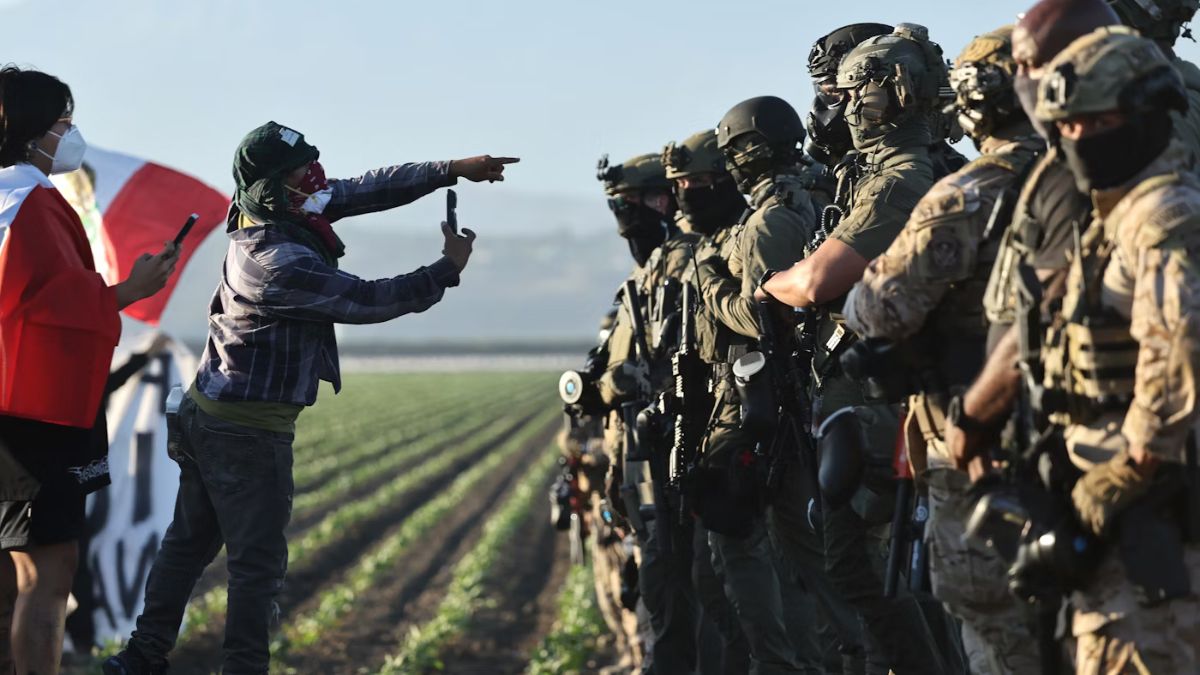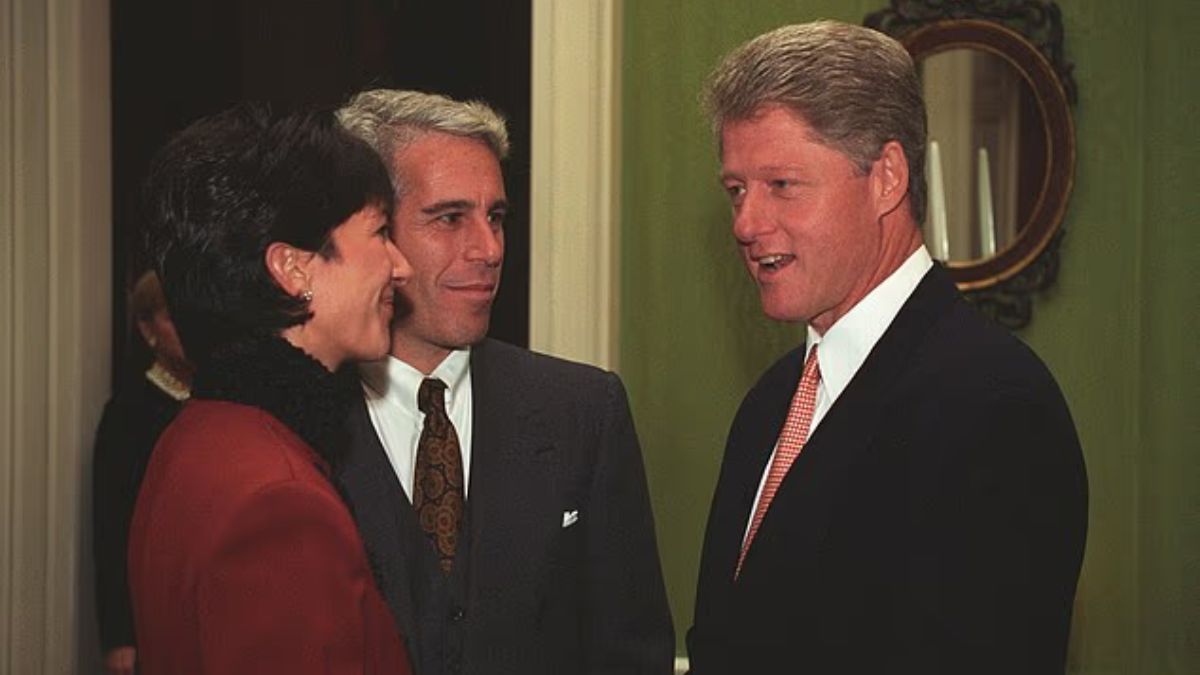Federal immigration agents arrested more than 300 people during a large raid on farms near Camarillo, California, on July 10. The arrests targeted farm workers but also included people protesting against the raids.
Videos posted on social media early in the day showed federal vehicles arriving in the area. By the afternoon, news helicopters captured live footage of Immigration and Customs Enforcement (ICE) agents detaining workers. Some agents stood near a stretcher where a person lay injured.
Protesters quickly gathered at the scene. Many stood between ICE agents and farm workers, recording the events on their phones. Some protesters were arrested after agents fired smoke canisters into the crowd.
According to the Department of Homeland Security, the July 10 operation may be the largest single immigration raid under the current Trump administration. Over the past 40 days, ICE raids in California have led to about 3,000 arrests. The federal government has deployed 2,000 National Guard members and 700 active-duty Marines in Los Angeles to assist with immigration enforcement.
Immigrant advocates say the raids are designed to intimidate both immigrant communities and their supporters. In addition to detaining undocumented workers, federal agents arrested protesters, including Jonathan Caravello, a professor at California State University. His union says his arrest was politically motivated. Caravello was released after several days in federal custody but faces charges for obstructing law enforcement.
Other activists are also facing charges for actions such as blocking ICE buses or giving protective gear to protesters. Critics argue these cases are meant to silence opposition.
The United Farm Workers union said that some of those arrested on July 10 were U.S. citizens. One of them, George Restes, a disabled veteran, said he was pepper-sprayed and held for three days without medical care.
Advocacy groups claim that ICE agents forced many detainees to delete videos and photos of the raids before releasing them.
The raids have left many families separated. Some children are now caring for younger siblings while waiting for detained family members to return. One farmworker, Jaime Alanís, who was injured during the raid, died in the hospital two days later. His family plans to return his body to his hometown in Michoacán, Mexico.
Immigrant rights groups and labor unions have called for an immediate end to the raids and the release of all detainees. Protesters say they will continue to document and resist the enforcement actions despite the risks.











